Kiren remembers Mahatma Gandhi on his 150th anniversary, this year. She, along with Different Truths, pays a tribute to the great man. An exclusive.
Power is of two kinds. One is obtained by the fear of punishment and the other by acts of love. Power based on love is a thousand times more effective and permanent, then the one derived from fear of punishment
Yes, friends! Gandhiji was one such person, with his power of love, truth, and gentleness, he impacted the hearts of every common man to such an extent that he came to be respected as the father of the Nation (जनजन के हृदय में बसने वाले महात्मा), most lovingly called Bapu.
Gandhiji helped win India independence through his three powerful ‘S’: Swadeshi, Swaraj, Satyagraha
Born on October 2, 1869, Gandhiji helped win India independence through his three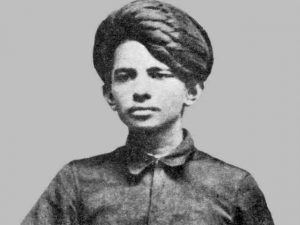 powerful ‘S’: Swadeshi, Swaraj, Satyagraha – the tools and techniques which were based on truth, love, compassion, and nonviolence.
powerful ‘S’: Swadeshi, Swaraj, Satyagraha – the tools and techniques which were based on truth, love, compassion, and nonviolence.
Swadeshi gave us Khadi. Swaraj freed our country, and Satyagraha became a tool to stand firm in the face of truth without any violent means.
I belonged to an era, hen India was in its early stages of independence. I had not seen Gandhiji. But he was alive in our house through the daily conversations of our parents. They let us know what a great person he was.
There was no Internet or advanced communication then. We had a small radio in our house. It was our prized possession. Every day, we heard the songs sung in praise of the Mahatma: “वैष्णव जन तो तेने कहिए पीर पराईजाने रे”
Before I go any further, let me talk about this song.
The song, Vaishnav jan, was written in 15th Century, in Gujarati language, by Narsingh Mehta. It became popular during Gandhiji’s time.
The song, Vaishnav jan, was written in 15th Century, in Gujarati language, by Narsingh Mehta. It became popular during Gandhiji’s time. When he heard it for the first time, he felt there was no better Bhajan than this for our country’s culture, progress and ‘sanskar’. It was sung in the morning and evening, as a prayer, at Sabarmati Ashram.
Now here’s a little story.
My father had got me a toy, a set of three monkeys depicting three different actions. He told me its importance: see no evil, hear no evil and speak no evil. He also told us that these monkeys are known as Bapu ke teen Bandar (Three monkeys of Bapu). Those were my first early impressions of moral values and my connection with Gandhiji.
Our parents were not very educated. They came to India from Lahore after the partition. They were very patriotic. They told us many stories and tales to inspire the love for the nation in us and made us aware of our culture.
The influence of his mother was so great that unknowingly or knowingly Mohandas imbibed the same behaviour pattern…
In my early school days, I learnt that young Mohandas as a very shy boy, who loved his mother the most. His mother, Putlibai, was a very religious person. Her whole life 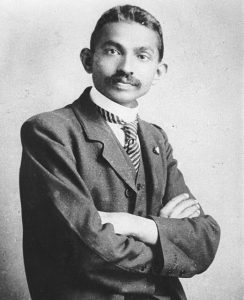 was based on continuous chains of fasts, fulfilling her vows with self-sacrifice. The influence of his mother was so great that unknowingly or knowingly Mohandas imbibed the same behaviour pattern and traits, which we later find in him in the form of Satyagraha and in the freedom struggle movement.
was based on continuous chains of fasts, fulfilling her vows with self-sacrifice. The influence of his mother was so great that unknowingly or knowingly Mohandas imbibed the same behaviour pattern and traits, which we later find in him in the form of Satyagraha and in the freedom struggle movement.
I was very amused to learn that young Mohandas was even a rebel like any other teenage boy, secretly eating meat, smoking, lying and petty theft. Most of us have done this in our childhood.
When he confessed to his father with teary eyes and vowed never to do it again, he stuck to his commitment. That was his first streak of self-discipline in him.
Before Gandhi left for his law studies in England, his mother made him promise by placing his hand on her head to take three vows as his commitment and love towards her, which he did in earnest: no meat, no women and no alcohol or tobacco. Mohandas never broke his promise.
His mother died while he was away. It was heartbreaking for Mohandas that he could not be with his mother during her last days. Yet the imprint of her maternal love was there. The seeds of his strength through gentleness had been planted in the young man, later to become the great soul.
He stayed in South Africa for 21 years fighting against racial discrimination.
Having become an attorney, Gandhiji went to South Africa, in 1893. This was the starting point to fight against racial discrimination. He stayed in South Africa for 21 years fighting against racial discrimination. Eventually, he succeeded in having a law passed that protected Indian immigrants living in South Africa. A great historian, Chandran Devanesan said, South Africa was the making of the Mahatma.
After his time in South Africa, Gandhiji returned to India where he became a leader of nonviolence dedicated to fighting against injustice and for the independence of India. Many times he was jailed. But, Gandhiji was always firm in his stand with his strong tool of nonviolence.
Now, we are celebrating Gandhi ji 150th birth anniversary. A century ago, in 1919, the tragic Jallianwala Bagh happened, which forced Gandhiji to start noncooperation movement – civil disobedience and the famous Dandi March.
Wherever he went, he wore only a loincloth and sandals, marking himself as the ally of the poorest and most discriminated.
When India got independence, in 1947, a communal violence broke out with the partition of India and Pakistan. It pained Gandhiji beyond measure. He pledged fast unto death. That was his way to unite people’s heart and get them back to lead life in harmony.
A one-man army, with the tools and technology of love, trust and nonviolence he connected with the masses.
Gandhiji was a political man but more than that he was a statesman. He was a one-man army, with the tools and technology of love, trust and nonviolence he connected with the masses.
Even the British dreaded him. In one of the statements they acknowledge that there is nowhere, we can say Gandhi’s philosophy was wrong. He was fighting with the tool that Jesus Christ believed in. They saluted him as a saint and statesman, who was using the Christian principle, as a weapon against men with Christian belief.
When his life was snuffed out on 30th Jan 1948, with that fatal shot, Gandhiji made his transitory journey to the other world with folded hands and his last words were, “Hey Ram” – forgiving and blessing all.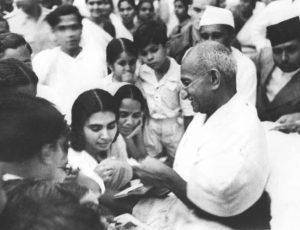
As a concluding note, I would say:
Once in a thousand years,
Comes a man who
Walks the face of the earth
With such an immeasurable.
Impact on humanity …
That the whole humanity
Could not resist
But sing in his praise.”
And you know which is that song:
े दी हमें आज़ादी बिना खड़ग बिना ढाल
साबरमती के संत तू ने कर दिया कमाल
रघुपति राघव राजा राम।
(He gave us freedom without sword or shield
Sain of Sabarmati you did wonders
Raghupati Raghava Raja Ram).
©Kiren Babel
Photos from the Internet

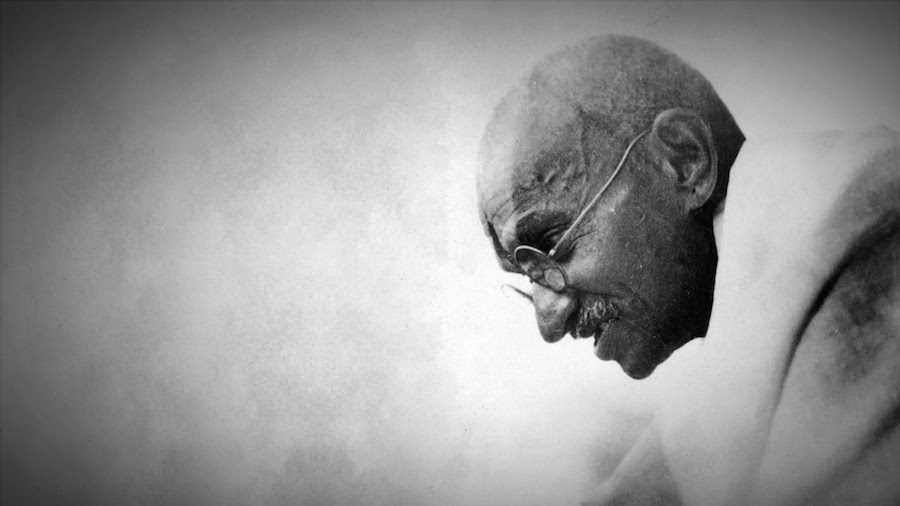



 By
By
 By
By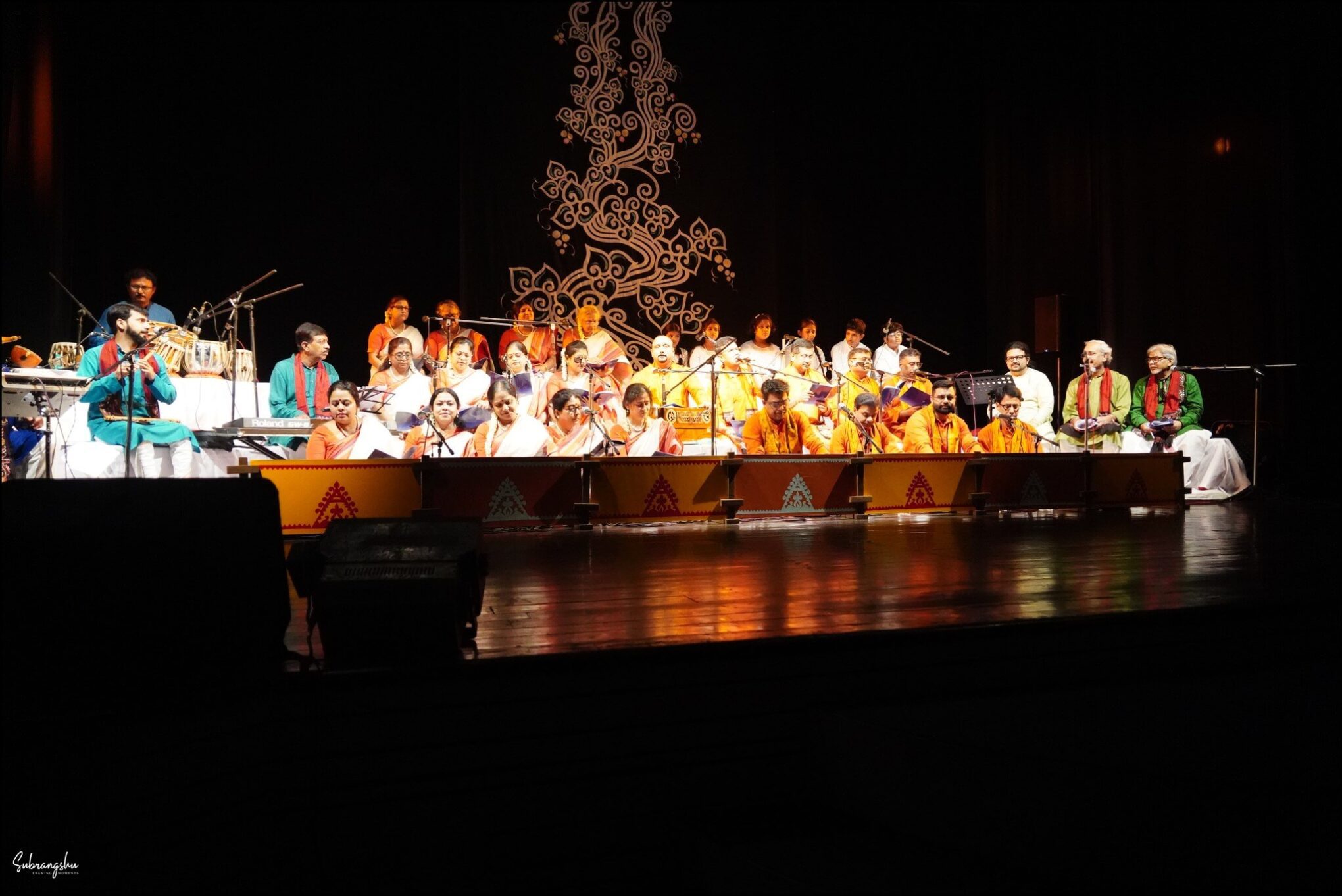
 By
By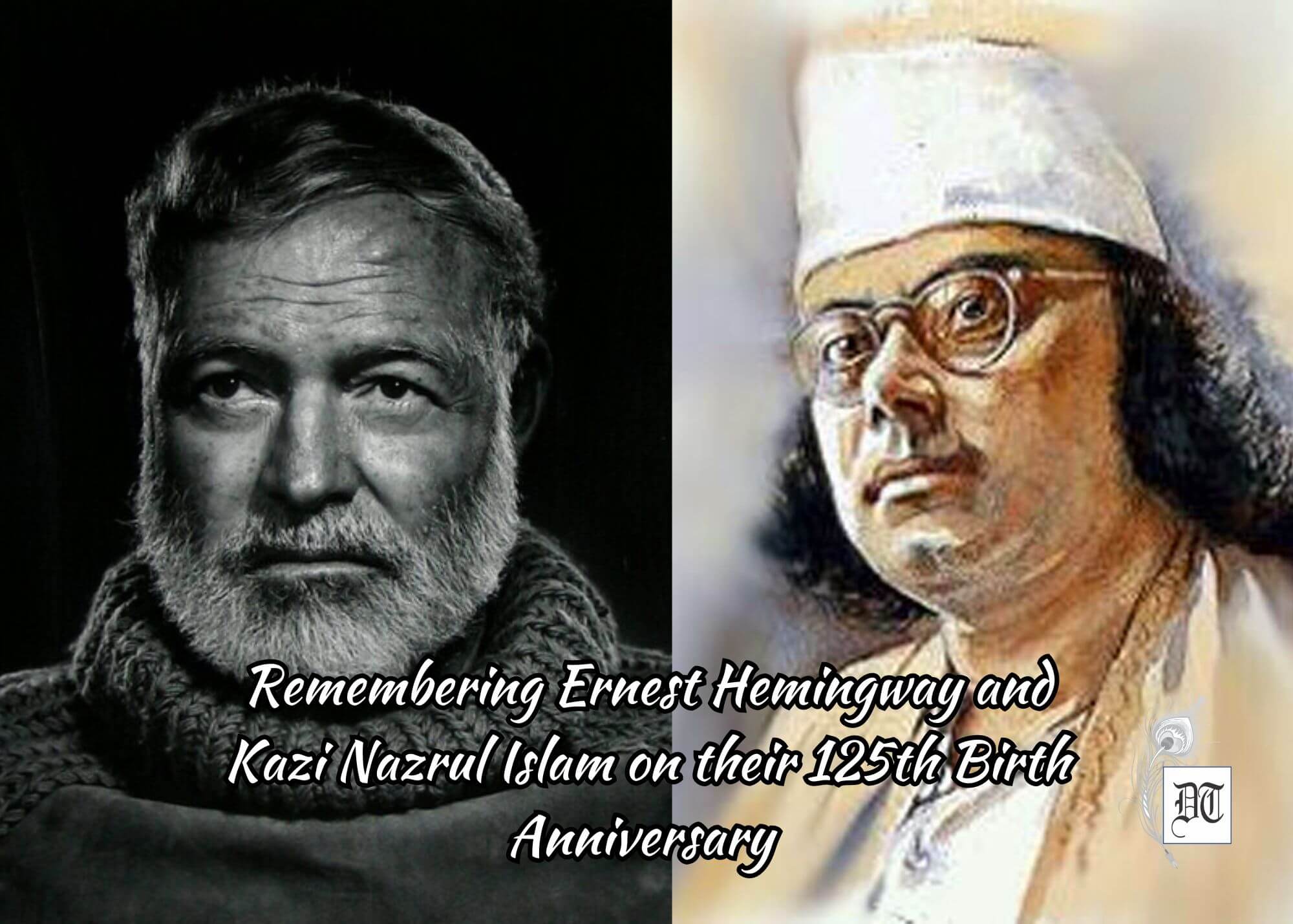
 By
By